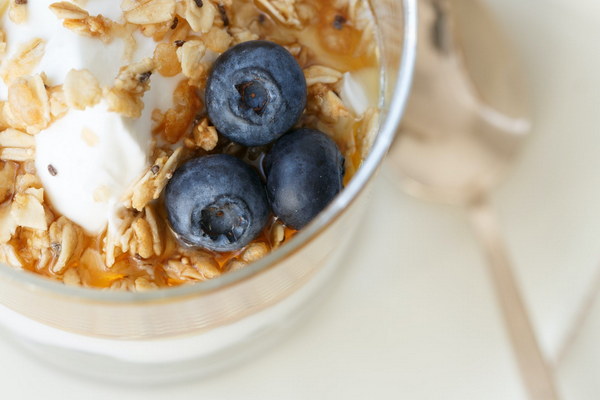Nurturing Little Ones at Home A Guide to Balancing Health for Toddlers
Nurturing Little Ones at Home: A Guide to Balancing Health for Toddlers
Raising a toddler is a journey filled with both joy and responsibility. Ensuring that these little bundles of energy are healthy and thriving is a priority for every parent. While regular medical check-ups and vaccinations are crucial, there are numerous ways to support a toddler's health from the comfort of home. This article provides a comprehensive guide to nurturing your toddler's health through simple, everyday practices.
1. Balanced Diet: The Foundation of Good Health
The food a toddler eats is the cornerstone of their health. A balanced diet should include a variety of fruits, vegetables, whole grains, lean proteins, and dairy or dairy alternatives. Here are some tips to help create a nutritious meal plan:

- Offer a Variety of Fruits and Vegetables: Toddlers should have at least five portions of fruits and vegetables each day. Hide vegetables in soups, purees, or sauces to increase their intake.
- Incorporate Whole Grains: Brown rice, whole wheat bread, and oatmeal are excellent sources of fiber and essential nutrients.
- Choose Lean Proteins: Chicken, fish, beans, and eggs are great sources of protein that aid in growth and development.
- Dairy or Dairy Alternatives: Milk, cheese, and yogurt provide calcium and vitamin D, which are vital for strong bones and teeth.
2. Hydration is Key
Proper hydration is essential for a toddler's health. Water is the best choice for hydration, but other options like milk and unsweetened juices can also be included in moderation.
- Encourage Regular Water Intake: Provide a small cup or sippy cup filled with water during meals and snacks.
- Offer Hydrating Foods: Fruits like watermelons, cucumbers, and peaches have a high water content and can contribute to hydration.
- Avoid Sugary Drinks: Limit the consumption of sugary drinks, as they can lead to dental problems and health issues.
3. Regular Physical Activity
Physical activity is not only important for maintaining a healthy weight but also for the development of gross and fine motor skills. Here are some activities to incorporate into your toddler's routine:
- Playtime: Organized play sessions, such as playing catch or hide and seek, can help develop coordination and social skills.
- Daily Walks: Regular walks to the park or around the neighborhood can provide fresh air, sunlight, and exercise.
- Structured Play: Activities like puzzles, blocks, and simple art projects can enhance fine motor skills and cognitive development.
4. Adequate Sleep
Sleep is crucial for a toddler's physical and mental well-being. Establishing a consistent sleep routine is essential.
- Create a Sleep Environment: Keep the bedroom dark, quiet, and at a comfortable temperature.
- Establish a Bedtime Routine: A calming routine such as reading a story, singing a lullaby, or taking a warm bath can signal to the toddler that it's time to sleep.
- Monitor Sleep Duration: Toddlers typically need between 11 to 14 hours of sleep per day, including naps.
5. Emotional Well-being
A toddler's emotional health is just as important as their physical health. Here are some ways to support emotional well-being:
- Encourage Expression: Provide a safe space for your toddler to express their feelings through art, music, or words.
- Praise and Positive Reinforcement: Recognize and celebrate your toddler's achievements, no matter how small.
- Quality Time: Spend one-on-one time with your child to build a strong bond and provide emotional support.
6. Preventative Care
Preventative care is key to maintaining good health. Here are some practices to consider:
- Regular Check-ups: Keep up with the recommended pediatrician appointments for vaccinations and health screenings.
- Hand Hygiene: Teach your toddler to wash their hands regularly to prevent the spread of germs.
- Safe Environment: Ensure that the home is safe and free of hazards that could lead to accidents.
By following these simple yet effective strategies, parents can create a nurturing environment that supports their toddler's health and well-being. Remember, each child is unique, so it's important to adapt these practices to suit your little one's specific needs and preferences. Nurturing a toddler's health at home is a journey that, with patience and love, can lead to a lifetime of good health and happiness.









